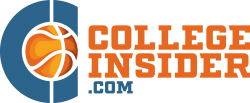Beginner’s Guide to Understanding College Basketball Betting

For those just starting out, college basketball betting can seem daunting. However, with the right knowledge and approach, you can make informed bets and enjoy the process. This guide aims to provide you with a solid foundation in sports betting education, focusing specifically on college basketball.
Understanding the Basics
Imagine you’re at a college basketball game. The crowd is roaring, the players are giving it their all, and you can feel the excitement in the air. Now, let’s say you want to place a bet on this game. The most straightforward type of bet is a “moneyline” bet. This simply means you’re betting on which team will win the game. For example, if Team A is playing against Team B, you can place a bet on either team to win. If your chosen team wins, you win your bet. Simple, right?
Another common type of bet is the “point spread.” Here, you’re not just betting on who will win but also by how much they will win or lose. For instance, if Team A is favored to win by 5 points, they need to win by more than 5 points for you to win your bet. If they win by exactly 5 points, it’s a tie, and you neither win nor lose. If they win by less than 5 points or lose the game, you lose your bet.
Understanding these basics can help you get started on the right foot. To learn more about betting basics, be sure to visit the sports betting 101 section by TrustnBet, an essential resource in the world of college basketball betting.
Key Strategies for Beginners
One of the most relevant aspects of sports betting education is learning effective strategies. Bankroll management should be your top priority; it involves setting a budget for your bets and sticking to it. Never wager more than you can afford to lose and always be prepared for losses.
Research is another critical strategy. Stay updated with team performance statistics, player injuries and coaching changes. Reliable sources such as academic publications and official reports offer valuable insights that can influence your betting decisions.
The importance of comparing lines cannot be overstated either. Different sportsbooks may offer varying odds for the same game. Comparing these odds allows you to find the most favorable ones, increasing your potential returns.
Another strategy that beginners should consider is specialization. While it might be tempting to bet on a wide variety of games and conferences, focusing on a specific niche can be more beneficial. By specializing in a particular conference or even a few teams, you can develop a deeper understanding of their performance patterns, strengths and weaknesses. This specialized knowledge can give you an advantage over generalist bettors and even bookmakers who have to spread their attention across multiple sports and leagues.
The Role of Data and Analytics
Data and analytics play a significant role in modern sports betting education. Advanced statistics can provide deeper insights into team performance and individual player contributions. For example, metrics like Player Efficiency Rating (PER) and True Shooting Percentage (TS%) give a clearer picture of a player's effectiveness on the court.
Utilizing data-driven tools can also enhance your betting strategies. Many platforms offer predictive models that analyze historical data to forecast future outcomes. These models can help you make more informed bets by identifying trends that might not be immediately obvious.
However, it's important not to rely solely on data. Contextual factors such as team morale, home-court advantage and even weather conditions (in case of outdoor games) should also be considered when placing bets.
One emerging trend in sports analytics is the use of machine learning algorithms. These sophisticated tools can process vast amounts of data to identify complex patterns and relationships that might escape human analysis. For instance, machine learning models can analyze not just individual player statistics, but also how different player combinations perform together. This can be particularly useful in college basketball, where team dynamics and chemistry play a crucial role. While these tools are powerful, it's important to remember that they should complement, not replace, your own analysis and judgment.
Avoiding Common Pitfalls
In your journey through sports betting education, you'll likely encounter several pitfalls that many beginners face. One common mistake is chasing losses; this involves placing larger bets in an attempt to recover previous losses quickly. Such behavior often leads to even greater losses and should be avoided at all costs.
Another pitfall is ignoring emotional bias. As a college basketball enthusiast, you might feel tempted to bet on your favorite team regardless of their actual chances of winning. It's crucial to remain objective and base your decisions on facts rather than emotions.
Lastly, beware of overconfidence after a winning streak. Success can sometimes lead to complacency or reckless betting behavior. Always stick to your established strategies and continue practicing responsible bankroll management.


